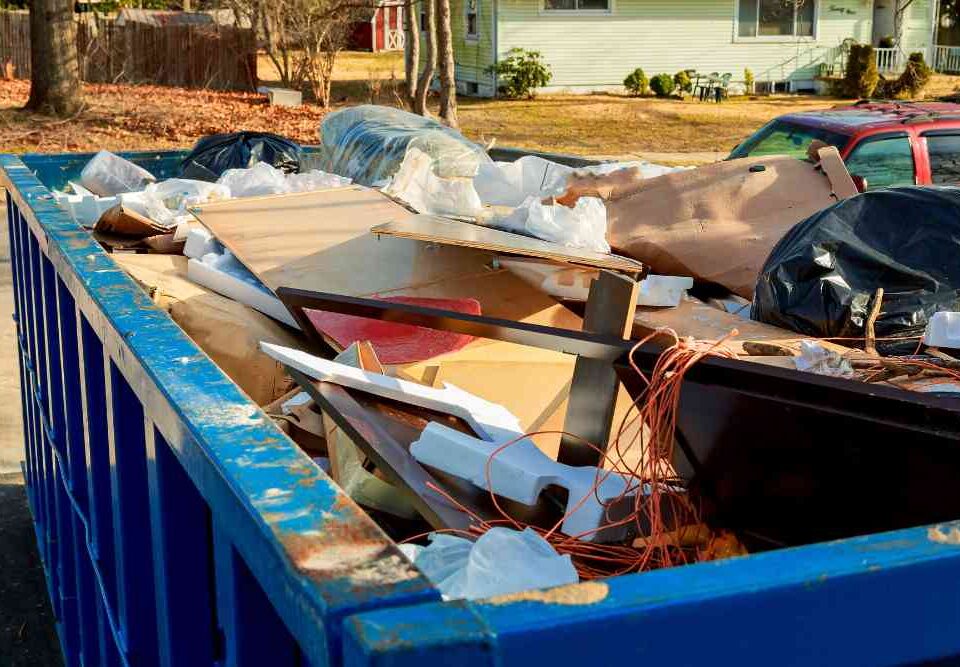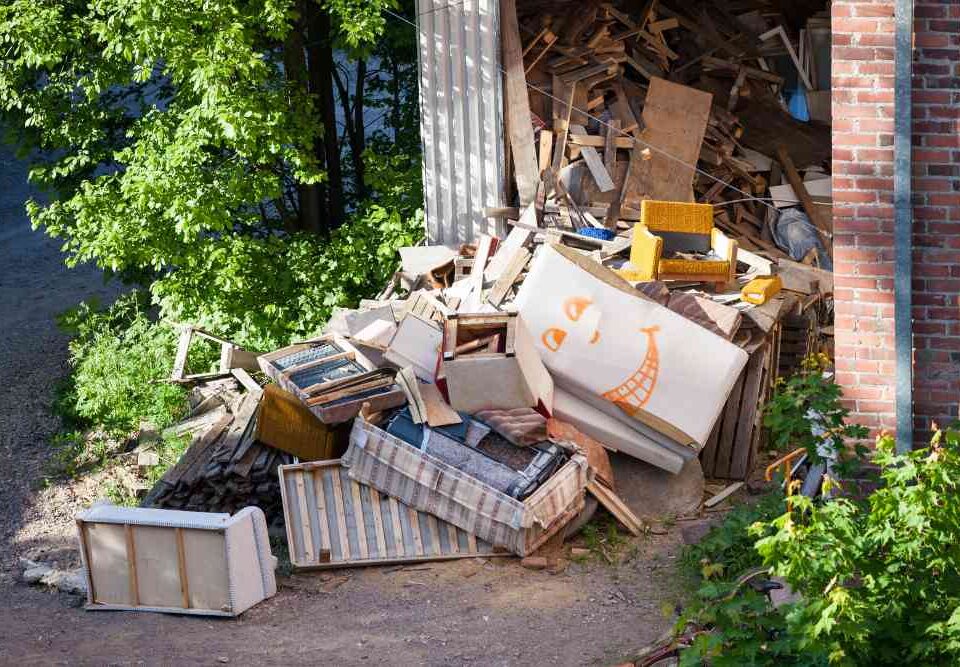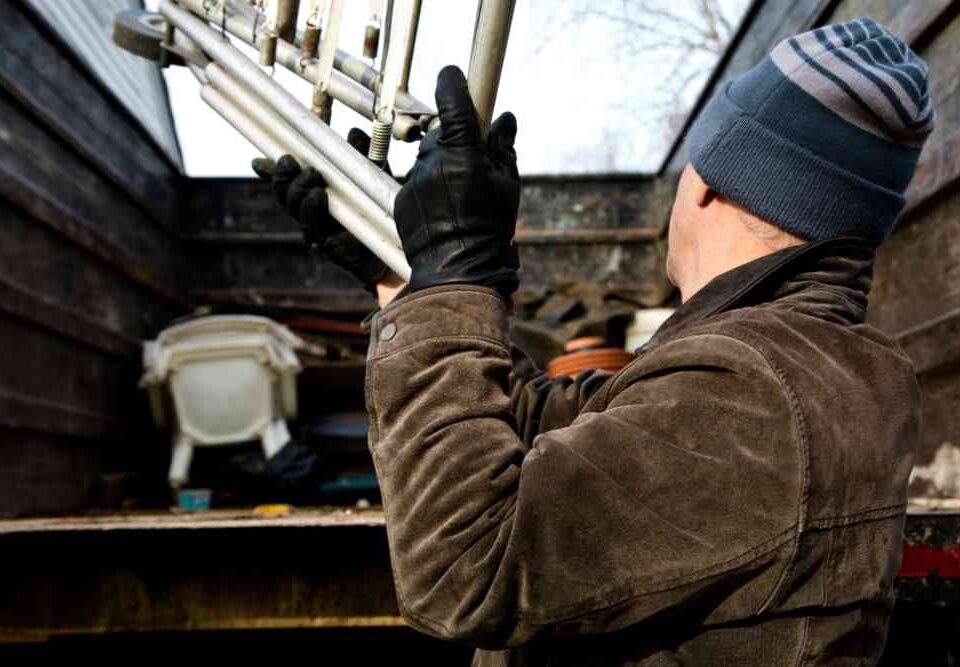
Why Retail Stores Should Prioritize Junk Removal
August 21, 2025
Managing Office Junk Best Practices for Commercial Spaces
August 21, 2025Essential Tips for Restaurant Junk Removal
Understanding the Importance of Regular Junk Removal in Restaurants
Restaurants generate a constant flow of waste from packaging, outdated equipment, and surplus inventory. Keeping this junk in check is essential for maintaining a safe and sanitary environment. When clutter accumulates, it can create obstacles in busy kitchens, increasing the risk of accidents and slowing down operations. Efficient junk removal not only clears space but also helps staff focus on core tasks without navigating through unnecessary hazards. By addressing junk systematically, restaurants can maintain an organized layout that enhances workflow, allowing chefs and servers to move seamlessly during peak hours.
Implementing a routine junk removal plan ensures that all types of waste, from broken appliances to excess furniture, are dealt with promptly. It also prevents the long-term accumulation of items that could become costly to remove later. Regular removal encourages recycling and proper disposal, supporting environmental responsibility. Restaurants that prioritize junk management create a healthier atmosphere for both employees and customers, leaving a positive impression and demonstrating professionalism and attention to detail.
Sorting and Categorizing Restaurant Waste
Effective junk removal starts with sorting waste into categories that make disposal easier. Different materials require distinct handling methods, from electronics and metals to food packaging and old furniture. By separating items at the source, restaurants reduce the chance of contamination and make recycling more efficient. This approach minimizes the risk of cross-contamination in kitchens, ensuring that food preparation areas remain clean and safe. Staff members benefit from a structured system that clarifies what can be recycled, reused, or thrown away, saving time and reducing confusion.
Organizing waste also highlights items that might still have value. Furniture or equipment in decent condition can be donated, while certain metals and electronics can be recycled for profit. Establishing clear categories for removal helps restaurant owners monitor disposal patterns and identify opportunities to reduce waste generation in the first place. This proactive approach ensures junk removal is both practical and environmentally conscious, reflecting a commitment to sustainable business practices.
Scheduling Consistent Junk Pickups
Maintaining a clutter-free restaurant requires scheduling consistent junk removal services. Regular pickups prevent waste from piling up, especially in storage areas and back-of-house spaces. By establishing a reliable routine, restaurants can anticipate when large items will be collected and plan accordingly, avoiding last-minute scrambles that disrupt operations. Predictable schedules also allow managers to allocate staff time efficiently, ensuring that employees are not distracted by the need to manage overflowing junk.
Consistency in removal fosters a cleaner work environment and reduces stress among staff. Knowing that junk will be taken away on a set schedule encourages employees to adhere to disposal protocols, further enhancing overall organization. It also minimizes the risk of fines or violations related to improper waste storage. With a dependable system in place, restaurant operators can maintain smooth day-to-day operations while promoting a professional image for both staff and customers.
Hiring Professional Junk Removal Services
Engaging professional junk removal services can streamline the process and reduce strain on restaurant staff. Specialists are equipped with the tools and expertise to handle heavy, bulky, or hazardous items safely. By outsourcing junk removal, restaurants avoid the logistical challenges of transporting large items themselves, which can be time-consuming and potentially risky. Professional crews also ensure that items are disposed of according to local regulations, reducing liability concerns for business owners.
In addition to safety and compliance, professionals often provide faster and more thorough removal than internal teams alone. They can efficiently sort, load, and transport materials, leaving the restaurant space ready for immediate use. Utilizing experienced services also allows restaurant staff to focus on core operations, improving productivity and morale. Overall, professional junk removal offers a practical solution for restaurants seeking to maintain a clean and organized environment without overburdening their team.
Handling Hazardous Waste Properly
Restaurants frequently generate hazardous waste, including cleaning chemicals, old grease, and expired ingredients. Proper disposal of these materials is critical to protect employees, customers, and the environment. Mishandling hazardous items can lead to health risks, contamination, or legal penalties. Developing clear protocols for hazardous waste ensures that these substances are stored safely and disposed of according to regulations, preventing accidents and environmental harm.
Staff training is essential to ensure everyone understands the risks and procedures associated with hazardous materials. Labels, secure containers, and designated storage areas help minimize exposure and facilitate safe removal. Partnering with specialized disposal services may also be necessary for certain chemicals or equipment. By taking hazardous waste seriously, restaurants demonstrate a commitment to safety, regulatory compliance, and responsible environmental stewardship, while maintaining a functional and organized workspace.
Repurposing and Donating Usable Items
Not all restaurant junk needs to be discarded completely. Items in good condition, such as tables, chairs, and appliances, can be repurposed or donated to local charities, schools, or community programs. This approach not only extends the life of these materials but also supports the local community and aligns with sustainable business practices. Identifying items for donation requires regular inventory checks and assessment of their usability before disposal.
Repurposing items internally can also offer creative solutions. For example, old wooden pallets may be turned into shelving, and outdated décor can be reimagined for seasonal displays. These strategies reduce waste and can save costs while enhancing the restaurant’s image as a socially responsible establishment. By considering donation and repurposing options, restaurants can maximize the value of their resources, minimize environmental impact, and contribute positively to their community.
Managing Large Kitchen Equipment Disposal
Large kitchen equipment such as ovens, refrigerators, and fryers can be challenging to remove due to size and weight. Planning for these items requires careful coordination to prevent damage and ensure safety. Disassembling equipment when possible, securing pathways, and using the right tools can simplify the removal process. Scheduling professional help for lifting and transport is often the safest choice, preventing injuries and costly damage.
Proper disposal also involves understanding the potential for recycling or resale. Many metal components and electronics can be processed to recover value, reducing the environmental footprint of disposal. Documenting equipment removal and maintaining records ensures that restaurants comply with regulations and can track replacement schedules effectively. Handling large kitchen appliances with care is essential to maintaining a safe work environment and supporting efficient restaurant operations.

Reducing Waste Through Preventive Measures
Implementing preventive measures reduces the volume of junk restaurants generate. Regular maintenance of equipment, inventory management, and thoughtful purchasing decisions help minimize the creation of unnecessary waste. By addressing potential issues before they escalate, restaurants can extend the life of their assets and reduce the frequency of removal needs. Preventive strategies also include encouraging staff to follow waste reduction practices and recycling initiatives consistently.
In addition to saving space and resources, reducing waste through prevention supports financial sustainability. Fewer discarded items mean lower disposal costs and less reliance on external junk removal services. Restaurants that proactively manage waste demonstrate operational efficiency, environmental responsibility, and foresight. This forward-thinking approach fosters a cleaner, safer, and more organized establishment, benefiting both staff and patrons alike.
Maintaining Compliance With Local Regulations
Restaurants must adhere to local waste disposal and health regulations to avoid fines and operational disruptions. Compliance includes proper sorting of recyclables, safe disposal of hazardous materials, and timely removal of waste. Staying informed about municipal guidelines ensures that all junk removal activities meet legal requirements, protecting the business from potential penalties and reputational harm.
Regular audits and staff training support consistent compliance. Establishing clear procedures for documenting and disposing of various types of waste helps restaurants maintain transparency and accountability. Compliance also reinforces safety, reducing risks associated with improperly handled materials. By integrating regulatory requirements into routine operations, restaurants can manage junk effectively while fostering a professional and legally responsible environment.
Streamlining the Back-of-House Space
An organized back-of-house is critical for smooth restaurant operations. Clearing clutter, arranging equipment, and optimizing storage areas create a more efficient workflow and reduce safety hazards. Junk removal plays a central role in achieving this by eliminating obsolete or broken items that occupy valuable space. A streamlined kitchen and storage area allow staff to move quickly, access tools easily, and maintain hygiene standards without obstruction.
Regular cleanouts also make it easier to identify maintenance needs and improve overall operational efficiency. By consistently managing junk and organizing space, restaurants can enhance productivity, minimize the risk of accidents, and create a positive work environment. A clean and well-arranged back-of-house contributes to the overall success of the restaurant and ensures that every team member can perform their duties effectively.
Conclusion
Maintaining a clutter-free restaurant requires dedication, planning, and a practical approach to junk removal. By incorporating regular pickups, proper sorting, and professional assistance, restaurant owners can ensure a safe, organized, and efficient environment for both staff and customers. Preventive measures and compliance with local regulations further enhance operational effectiveness, reducing risks and promoting sustainability. Consistent attention to junk management supports a cleaner workspace, smoother workflow, and a professional image that customers notice and appreciate.
For reliable and professional junk removal services in Santa Rosa, CA, North Bay Junk Removal offers comprehensive solutions. Their team handles everything from furniture and kitchen appliances to hazardous materials, ensuring proper disposal in accordance with local regulations. Restaurants can benefit from their expertise and efficient service by contacting North Bay Junk Removal at 707-478-6817. Choosing their services allows businesses to maintain a safe, organized, and compliant environment while focusing on delivering exceptional customer experiences.




